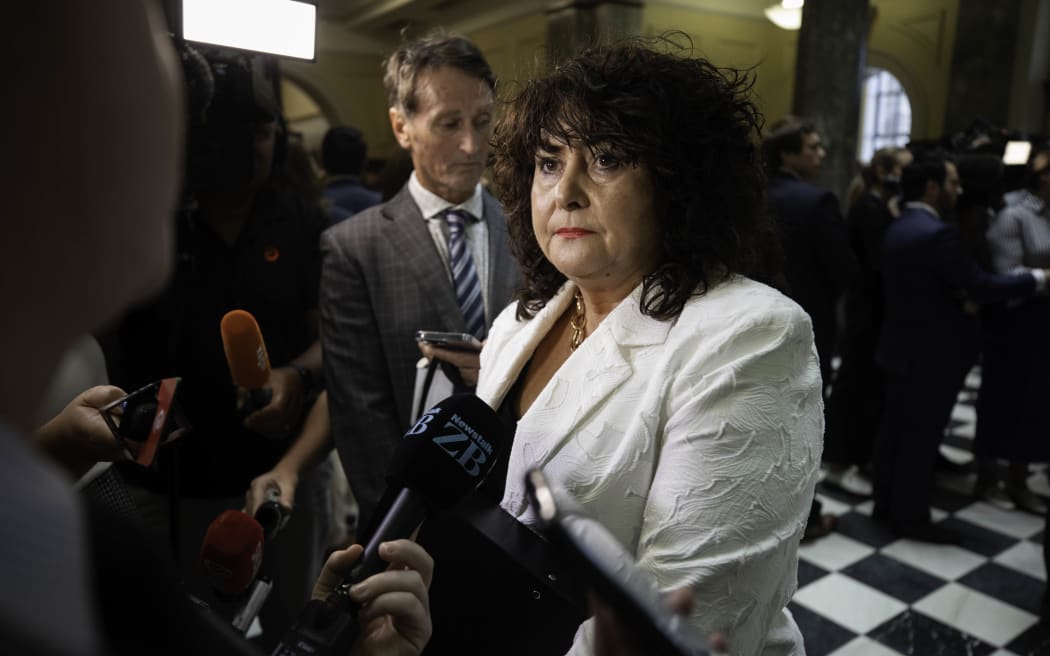Associate Health Minister Casey Costello has recently been under fire for misleading Parliament over requests for advice on freezing excise duty on tobacco products – a policy welcomed by the tobacco industry. Now it increasingly appears that the policy, and many other tobacco industry-friendly measures have come directly from the tobacco industry’s play book.
When asked in January if she was proposing a three year freeze on tobacco excise, she claimed she had not considered it and said “I’ve had no discussions on that at all. Like, that’s – it’s not even something I specifically sought advice on,” and “I haven’t looked at a freeze on the excise at all.”
Documents later leaked to RNZ demonstrated this was untrue. The Ministry of Health staffer who leaked the documents was identified, and “no longer works at the Ministry.” Public health experts called for her removal as Associate Health Minister, saying “She’s acting more like a minister for the tobacco industry.”
She has since been forced to apologise to the House in an apology that raised more questions than it answered. Costello may yet face further sanctions for misleading the House.
When it emerged Costello had provided a collection of policy directives to her ministry that was essentially a wish list from the tobacco industry she claimed not to have written the document. RNZ filed an Official Information Act request asking for all documents sent, held or received by Costello on tobacco and vaping policy but she refused to release any documents, citing a clause in the OIA protecting confidential advice tendered by ministers and officials. RNZ reported “Costello did not answer questions posed by RNZ.”
What we do know, based on confidential briefing papers reported on by RNZ, is that her officials urged Costello to retain parts of smokefree laws, offering multiple compromises to reduce harm. Costello rejected all of them.
More disturbing, officials were concerned that Costello’s notes “came straight from the tobacco industry playbook.” The briefing paper went on:
“A common tobacco industry tactic is to assert that tobacco policies will increase an illicit market,” the documents said. “The assertion of an increased illicit market is used to oppose tobacco control measures such as excise tax increases.”
Health officials said independent investigation of tobacco industry-funded studies revealed “numerous problems with the data collection, analysis and presentation resulting in inflated estimates of illicit tobacco trade”.
The evidence pointed the opposite way, the briefings said. “The research has so far found evidence of a decreasing illicit trade in tobacco in New Zealand over the past 10 years. Illicit trade accounted for an estimated 8.4 percent of the tobacco market in 2022.”
The documents said crime would also reduce under provisions in the current law to limit the nicotine in cigarettes to 0.8mg/g from April 2025 – a 95 percent reduction from the current levels of about 15 mg/g
“The low nicotine policy was also expected to significantly reduce the incentive to steal tobacco from approved retailers,” the documents say.
“The combination of these polices was therefore expected to reduce the overall risk of crime through fewer targets, more robust security processes, and a less appealing product.”
Costello’s association with the tobacco industry is well documented. Before becoming a candidate for NZ First she was Chair and board member of the Taxpayers’ Union that receives funding not only via the Atlas Network, but from tobacco companies directly.
It’s worth noting that the New Zealand government is a signatory to the WHO’s Framework Convention on Tobacco Control and has specific obligations under the Convention and related guidelines to limit engagement with tobacco companies to the minimum required for regulation; they are also required to record all interactions with tobacco companies.
So as a new Associate Minister of Health, fresh from an Atlas Network and tobacco industry-funded think tank, Costello is driving pro-tobacco policies under urgency that would have been nothing but a dream under the last government. And she is doing this while refusing to reveal who is creating this policy or to make herself accountable to the public. The Atlas network and tobacco companies must be thrilled with their investment.

